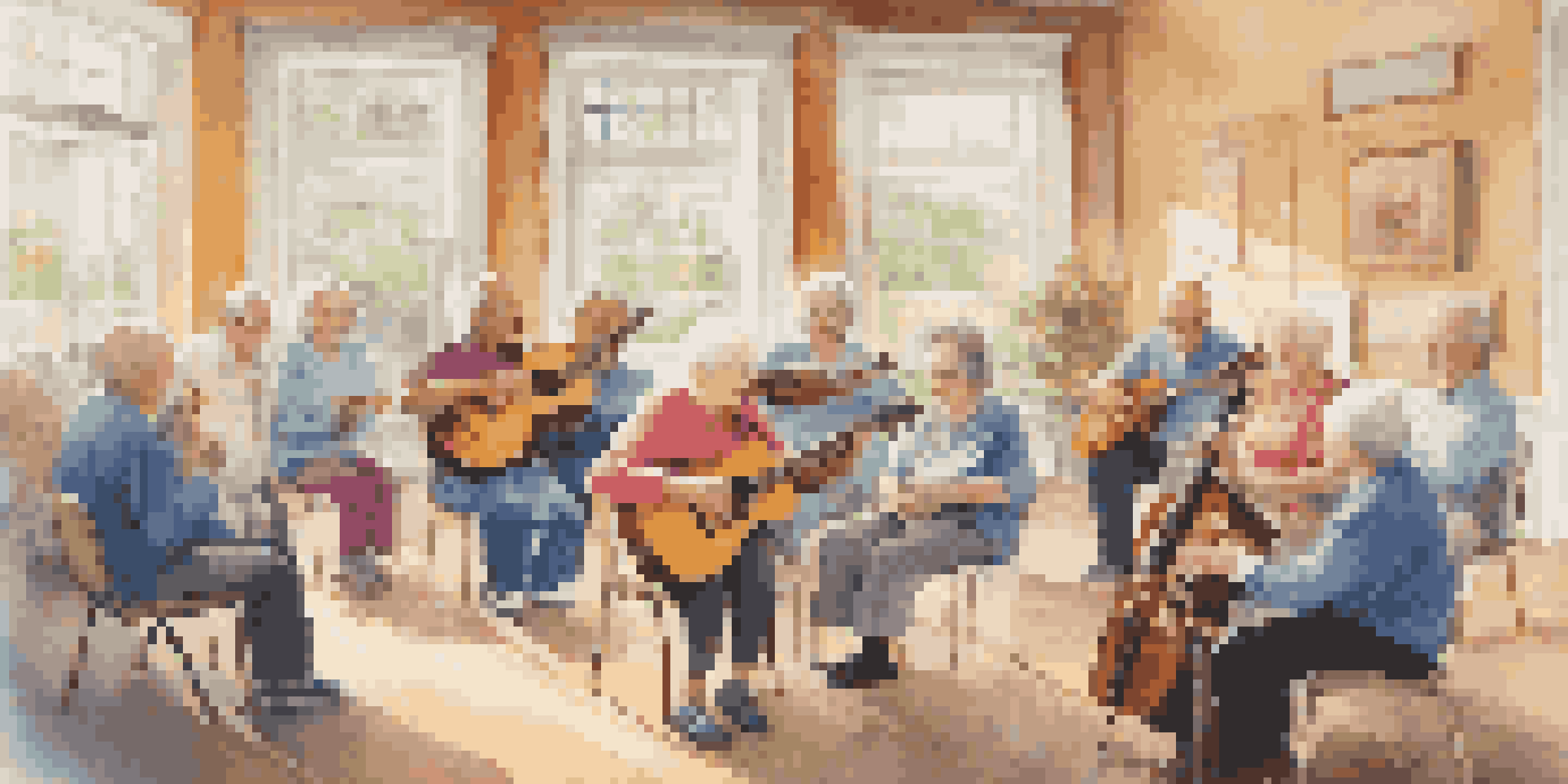The Healing Effects of Music on Seniors' Mental Health

Understanding Music's Impact on Mental Health
Music has a profound impact on our emotions and mental well-being, providing comfort and joy. For seniors, engaging with music can spark memories and create connections, contributing to a sense of belonging. The sound of a familiar tune can evoke feelings of nostalgia, which can be particularly powerful in combating feelings of loneliness or sadness.
The Science Behind Music and Emotion
Research shows that music stimulates the brain in unique ways, activating areas associated with emotion and memory. When seniors listen to music, their brain releases dopamine, a chemical linked to feelings of pleasure and happiness. This biological response helps to lift moods and reduce anxiety, making music a simple yet effective tool for enhancing emotional well-being.
Music Therapy: A Structured Approach to Healing
Music therapy is an evidence-based clinical intervention that uses music to achieve specific therapeutic goals. In sessions led by trained music therapists, seniors can participate in activities like songwriting, singing, or playing instruments. This structured approach not only promotes emotional expression but also encourages social interaction among participants, fostering a sense of community.
Creating Personalized Playlists for Seniors
One practical way to harness the healing power of music is by creating personalized playlists. Tailoring music selections to an individual's preferences can evoke cherished memories and enhance their mood. For instance, including songs from their youth or favorite artists can create a joyful listening experience that resonates deeply.
The Role of Music in Alleviating Anxiety and Depression
Many seniors experience anxiety and depression, often stemming from isolation or health issues. Music can serve as a soothing remedy during these challenging times, offering an escape from negative thoughts. Listening to calming melodies or uplifting tunes can help reduce stress levels and promote relaxation, leading to an improved sense of well-being.
Connecting Through Music: Building Relationships
Music has an incredible ability to connect people, making it a wonderful tool for building relationships. Group activities like sing-alongs or dance sessions encourage social interaction, helping seniors form bonds with others. These shared musical experiences can reduce feelings of isolation, fostering a supportive community.
Engaging with Music: Activities for Seniors
There are countless ways for seniors to engage with music, whether it's through listening, singing, or dancing. Group classes, local concerts, or even virtual music sessions can provide opportunities for enjoyment and interaction. By incorporating music into their daily routines, seniors can enhance their overall quality of life.
Conclusion: Embracing Music for a Healthier Mind
In conclusion, music is a powerful tool that can significantly improve mental health for seniors. By fostering emotional connections, alleviating anxiety, and promoting social interactions, music offers a multifaceted approach to well-being. Encouraging seniors to embrace music not only enriches their lives but also enhances their mental health in meaningful ways.